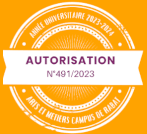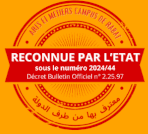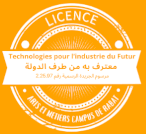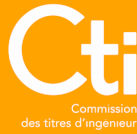Gaining an insight into all industrial and technological sectors
The challenges of the industry of the future require pragmatic engineers, combining technological knowledge, innovation and team spirit. The Grande Ecole Engineering Programme of Arts et Métiers meets these challenges, offering students a variety of courses of study.
What is the trademark of Arts et Métiers engineers? "Businesses appreciate their multidisciplinary vision, pragmatic approach, technical and behavioural skills and their human values", according to Xavier Dufresne, Director of Initial Training at Arts et Métiers. The three years of training are thus intended to acquire or strengthen these skills. "Each campus aligns the course with the territorial issues", Xavier Dufresne added, which also highlights another of the school's strengths: support for the research activities of Arts et Métiers to provide training in technologies of the future.
Regular immersion in companies
An essential complement to education is involvement in community life which contributes to the development of project management skills. "Engineering students are involved in the organisation of events, such as the Trades Forum", according to Xavier Dufresne. This is a beneficial experience for future professionals who, as managers of large projects, will be coordinating multidisciplinary and multicultural teams.
Professionalisation and international exposure are at the core of the training. The three years of studies are therefore punctuated by periods in companies: a four-week internship during the first year, an optional industrial placement during the second year, followed by an end-of-course internship of six months, which provides an opportunity to mobilise all the acquired knowledge in order to conduct an industrial project or to resolve technological issues. International exposure/experience is gained through academic exchange or internship for periods of at least 2 months to two years.
Multiple training choices
Students can prepare for the Grande Ecole Engineering Programme qualification via five different paths:
- student curriculum
- apprentice curriculum
- military curriculum
- infrastructure curriculum
- innovation and entrepreneurship curriculum
Throughout the three years, engineering student build their training project based on their career goals. After the first two years, which focus on experimentation and control technologies, the student benefits from a course selected from a range of options.
- If the aim is rapid integration into the world of work, students can choose from 32 majors, including new energies for sustainable development, aeronautics and space engineering and the management of technological innovation in the automotive industry.
- Students interested in Research and Development can incorporate one of 27 Masters of research specializations – enabling the student to move towards research careers or to go on to study at PhD level.
- The business creation and business development areas of expertise, as well as those of the Arts et Métiers incubators, are dedicated to entrepreneurs.
- Engineering students wishing to work abroad can choose from around one hundred double degree courses and dual skills courses.
Finally, those wishing to broaden their field of expertise, for example in civil aviation, management, public works, energy, have the possibility to pursue a double degree with one of the many partner institutes of Arts et Métiers in France.
The five strong points of the Grande Ecole Engineering Programme curriculum
- A qualification recognised by companies
- The most powerful alumni network in Europe
- A personalised course of study, with strong international potential
- Access to innovative technology platforms
- Diverse and dynamic community life





